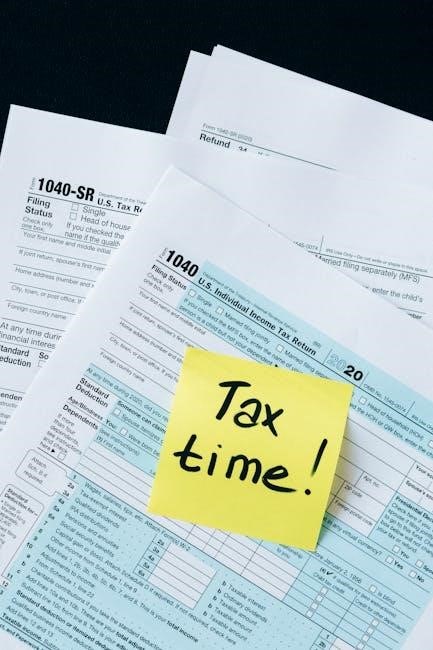DLA-20 Assessment: An Overview
The Daily Living Activities (DLA-20) assessment is a functional tool that estimates clients’ functioning across 20 daily living areas. Integrated with EHR systems, it measures the impact of mental illness and disability, supporting treatment and recovery progress for individuals aged six and up.
What is the DLA-20?
The DLA-20, or Daily Living Activities-20, stands as a clinician-administered functional assessment meticulously designed to reliably estimate a client’s level of functioning across twenty distinct areas of daily living. It serves as an outcomes measure, employing data related to a client’s daily routines and activities to effectively track progress. This assessment offers a snapshot of a person’s current needs, providing a 30-day overview of their capabilities in various life domains.
Appropriate for individuals aged six and above, the DLA-20 is versatile and can be utilized across diverse populations. Its integration with over 30 Electronic Health Record (EHR) systems nationally underscores its widespread adoption and utility in clinical settings. The DLA-20 assesses ten core domains of daily functioning, encompassing crucial aspects such as health practices, household responsibilities, communication skills, safety awareness, time management abilities, and nutritional habits.
Furthermore, the DLA-20 is recognized for fulfilling specific requirements, such as the Maryland Medicaid requirement for a standardized assessment tool. It serves as a comprehensive functional assessment and outcome measurement tool specifically tailored for behavioral health providers. Its ease of use and comprehensive nature make it a valuable asset in evaluating daily living skills and monitoring client progress.
Purpose of the DLA-20 Assessment
The primary purpose of the Daily Living Activities-20 (DLA-20) assessment is multifaceted, aiming to provide a comprehensive evaluation of an individual’s functional abilities in everyday life. It serves as a valuable tool for clinicians to gauge a client’s current level of independence and identify areas where support or intervention may be necessary. By assessing performance across twenty different daily living activities, the DLA-20 offers insights into the impact of mental health symptoms or disabilities on an individual’s ability to manage daily tasks and responsibilities.
Moreover, the DLA-20 functions as a crucial instrument for monitoring progress throughout treatment. By administering the assessment at regular intervals, clinicians can track changes in a client’s functional abilities and determine the effectiveness of interventions. This data-driven approach allows for informed decision-making regarding treatment planning and adjustments, ensuring that interventions are tailored to meet the specific needs of the individual.
The DLA-20 also plays a vital role in promoting recovery and goal-setting within clinical practice. By identifying strengths and areas for improvement, the assessment empowers clients to actively participate in their treatment and work towards achieving personal goals related to daily living. Ultimately, the DLA-20 aims to enhance an individual’s overall well-being and quality of life by fostering independence and self-sufficiency in managing daily activities.

Key Features and Functionality of the DLA-20
The DLA-20 is a clinician-administered assessment tool designed to reliably estimate a client’s functional abilities. Integrated with EHRs, it assesses daily living activities, monitors progress, and supports treatment planning for individuals aged six and up across various settings.
Domains Assessed by the DLA-20
The DLA-20 functional assessment tool evaluates ten crucial domains that significantly impact an individual’s daily functioning and overall well-being. These domains encompass a wide spectrum of activities and responsibilities essential for independent living and social engagement. One key domain focuses on health practices, assessing the individual’s ability to manage their physical and mental health needs, including medication adherence and self-care routines.
Household responsibilities form another critical domain, evaluating the individual’s capacity to maintain a clean and safe living environment, manage finances, and perform necessary household tasks. Communication skills are also assessed, examining the individual’s ability to effectively express themselves, understand others, and engage in meaningful social interactions.
The assessment further explores the individual’s awareness of safety and their capacity to avoid potential hazards in their environment. Time management skills are evaluated, focusing on the individual’s ability to plan and organize their daily activities, meet deadlines, and manage their time effectively. Nutrition is another domain, assessing the individual’s ability to make healthy food choices, prepare meals, and maintain a balanced diet.
In addition to these core domains, the DLA-20 assesses areas such as personal hygiene, social interactions, and vocational activities, providing a comprehensive picture of an individual’s functional strengths and challenges. These domains collectively contribute to a holistic understanding of the individual’s ability to live independently and participate fully in their community.
Scoring and Interpretation of DLA-20 Results
The DLA-20 employs a structured scoring system to quantify an individual’s functional abilities across the assessed domains. Each of the 20 Daily Living Activities is rated on a scale, typically ranging from 1 to 7, reflecting the level of independence and impairment observed over the past 30 days. A higher score indicates greater independence, while a lower score suggests more significant challenges in performing the activity.
To obtain an overall score, ratings for all 20 DLAs can be added, and the sum is then divided in half. This calculation provides an estimated modified Global Assessment of Functioning (mGAF) score, offering a snapshot of the individual’s overall level of functioning. Alternatively, scores from applicable columns can be added, followed by dividing the sum to get a general level of functioning.
Interpreting the DLA-20 results requires careful consideration of both the overall score and the individual domain scores. The overall score provides a general indication of the individual’s functional status, while the domain scores highlight specific areas of strength and weakness. These domain-specific insights can inform treatment planning and intervention strategies, targeting areas where the individual needs the most support.
Furthermore, it is crucial to consider the individual’s unique circumstances and cultural background when interpreting the results. The DLA-20 should be used as one component of a comprehensive assessment, alongside other clinical information and observations, to develop a holistic understanding of the individual’s needs and goals.

Practical Applications of the DLA-20
The DLA-20 has practical applications in evaluating daily living skills, monitoring progress, and informing treatment plans. It supports recovery and goal-setting in clinical practice by measuring the daily living areas impacted by mental illness or disability.
Using DLA-20 in Treatment Planning and Progress Monitoring
The DLA-20 plays a crucial role in treatment planning and progress monitoring within mental health and developmental disability services. Clinicians administer this functional assessment to reliably estimate a client’s functioning across 20 different areas of daily living. The results provide a 30-day snapshot of current needs, helping to tailor interventions.
By measuring daily living activities, the DLA-20 helps identify areas impacted by mental illness or disability. This information is vital for creating individualized treatment plans that address specific challenges and promote independence. Furthermore, the DLA-20 serves as an outcome measure, tracking progress over time. Providers can demonstrate measurable outcomes and improve efficiencies by monitoring changes in DLA-20 scores. This data helps determine if interventions are effective and whether adjustments are needed.
The DLA-20’s scoring system provides a framework for evaluating a client’s level of functioning compared to the general population. This allows clinicians to set realistic goals and track progress toward those goals. Regular DLA-20 assessments can highlight areas where the client is improving and areas where further support is needed, leading to more targeted and effective treatment strategies.
DLA-20 in Different Age Groups and Populations
The DLA-20 is designed to be a versatile tool, applicable across various age groups and populations within behavioral health. Appropriate for individuals aged six and up, the assessment’s broad applicability makes it valuable in diverse clinical settings. Its focus on daily living activities allows it to capture relevant functional information regardless of the client’s specific diagnosis or background.
For younger populations, the DLA-20 can help assess developmental progress and identify areas where support is needed to foster independence. In adults, it can measure the impact of mental health symptoms on daily functioning, aiding in treatment planning and recovery. The DLA-20 is also relevant for individuals with intellectual and developmental disabilities, evaluating their independent functioning and guiding support services.
Furthermore, the DLA-20’s integration with numerous EHR systems facilitates its use in diverse healthcare settings. Whether in community mental health centers or specialized disability services, the DLA-20 provides a standardized measure of functional abilities. This standardization allows for meaningful comparisons across different populations and settings, promoting evidence-based practice and improved client outcomes in various demographic groups.

DLA-20 and Integration with EHR Systems
The DLA-20’s seamless integration with over 30 Electronic Health Record (EHR) systems nationally is a crucial aspect of its utility and widespread adoption. This integration streamlines clinical workflows, reduces administrative burden, and enhances data-driven decision-making. By embedding the DLA-20 within EHR platforms, healthcare providers can easily administer the assessment, capture client responses, and generate reports directly within their existing systems.
This integration fosters efficient data management, allowing clinicians to track client progress over time and monitor the effectiveness of interventions. The ability to access DLA-20 results alongside other clinical information, such as medical history and treatment plans, provides a comprehensive view of the client’s needs and supports coordinated care. Furthermore, EHR integration facilitates data sharing and reporting, enabling organizations to meet regulatory requirements and demonstrate measurable outcomes.
Ultimately, the DLA-20’s integration with EHR systems promotes efficient and effective behavioral healthcare delivery. By simplifying the assessment process and enhancing data accessibility, it empowers clinicians to provide personalized, evidence-based care that improves client outcomes and supports recovery from mental health challenges and disabilities.

Resources and Training for DLA-20 Administration
To ensure accurate and reliable implementation of the DLA-20, comprehensive resources and training programs are available for clinicians and healthcare professionals. These resources aim to equip administrators with the knowledge and skills necessary to effectively administer the assessment, interpret results, and integrate findings into treatment planning.
Training programs typically cover various aspects of the DLA-20, including its theoretical framework, administration procedures, scoring guidelines, and interpretation of results. Participants learn how to effectively engage clients in the assessment process, gather relevant information, and accurately document their observations. Additionally, training often addresses the ethical considerations and cultural sensitivity required for administering the DLA-20 in diverse populations.
Beyond formal training, a range of resources are available to support DLA-20 administration. These may include user manuals, scoring guides, case studies, and online tutorials. Some organizations also offer technical assistance and ongoing support to help administrators troubleshoot challenges and enhance their proficiency in using the DLA-20. Accessing these resources and participating in training programs are essential for ensuring the valid and reliable application of the DLA-20 in clinical practice, ultimately leading to better client outcomes and improved quality of care.
